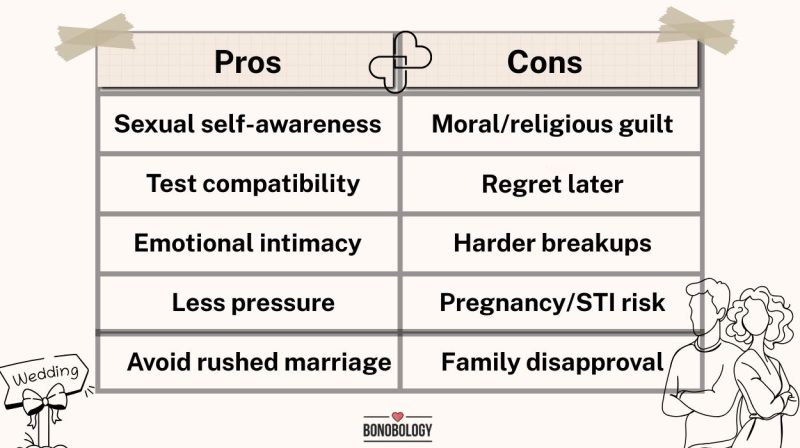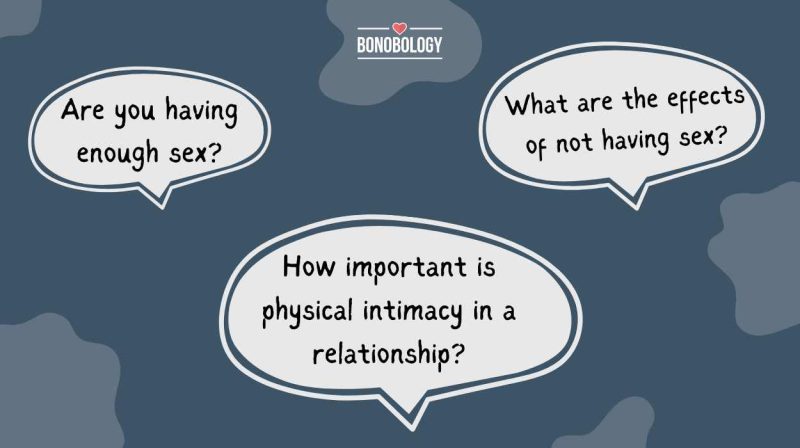Discussing sexual health with your partner is essential for maintaining a healthy relationship, yet many find it challenging. Various barriers can prevent these crucial conversations, ranging from fear of judgment to cultural taboos and misconceptions about privacy. Addressing these issues head-on can lead to more open and productive dialogues, ultimately strengthening the connection between partners. In this article, we’ll explore five reasons that might be stopping you from discussing sexual health with your significant other and offer insights on how to overcome them.
5 Things That Might Be Stopping Conversations About Sexual Health Among Partners
Table of Contents
Open and honest communication is the bedrock of a healthy relationship, and yes, that includes the ability to have uncomfortable conversations about sexual health. Do you struggle to open up to your partner on the count, ask questions, share concerns that may have been weighing on your mind? Understanding these barriers is the first step toward fostering a more honest and supportive relationship. Let’s take a look at the 5 most common reasons why there may be a hesitation among partners to discuss sexual health:
Related Reading: World Sexual Health Day: How Aware And Sexually Active Are People In India?
1. Fear of judgment
Fear of judgment is a common and powerful deterrent when it comes to discussing sexual health with a partner. Many people worry that sharing their sexual history, desires, or concerns could lead to being judged negatively or even rejected. This fear can stem from past experiences, societal stigmas, or personal insecurities.
When you think about revealing something intimate and potentially vulnerable, it’s natural to feel apprehensive. However, this fear can create a barrier to open and honest communication. Addressing this issue involves building trust and understanding within the relationship.
Start by fostering an environment where both partners feel safe and supported. Reiterate that these conversations are about mutual well-being and strengthening your connection. In time, reducing the fear of judgment can lead to more open dialogues about sexual health.
2. Lack of knowledge
Lack of knowledge about sexual health is a significant barrier to open communication among partners. Many people find themselves uneducated about topics like contraception, sexually transmitted infections (STIs), and preventive measures. This ignorance can lead to embarrassment or hesitation in initiating conversations with a partner.
However, educating yourself can make all the difference. For instance, understanding that using PrEP medication, which can help reduce the risk of contracting HIV, is one way you can stay healthy. Here’s how you can get it: consult your healthcare provider for guidance and prescription details. Taking steps to educate yourself empowers you to have informed discussions, ultimately fostering a healthier relationship.
Related Reading: Exercises For Better Sex That Make Men Last Longer In Bed
3. Cultural taboos
Cultural taboos surrounding sex can severely hinder open conversations about sexual health among partners. In certain cultures, discussing topics like contraception, STIs, or even sexual preferences is often considered inappropriate or shameful. This deeply ingrained perspective makes it challenging for individuals to bring up these essential issues with their partners.
Growing up in an environment where sex is a forbidden topic can create lasting discomfort around broaching the subject. To overcome this obstacle, mutual education and sensitivity are crucial. Partners should take small steps to learn about each other’s cultural backgrounds. Creating a respectful dialogue about these sensitive topics helps break down barriers, paving the way for more honest and productive conversations about sexual health.
Related Reading: The Best Sex Is Enjoyed Without Guilt Or Shame
4. Past trauma
Past trauma can cast a long shadow over conversations about sexual health. For those who have experienced abuse or traumatic events, discussing sexuality can be especially fraught with anxiety and fear. These individuals might associate such conversations with painful memories, making it difficult to speak openly with their partner.
Understanding this context is crucial for both partners. Approaching the subject with empathy is necessary for creating a safe space where honest dialogue can occur. It might also be beneficial to seek professional counseling to address these past experiences in a supportive setting. Healing takes time, and having an understanding partner can make navigating discussions about sexual health less daunting, ultimately fostering a healthier relationship dynamic.

5. Misconceptions about privacy
Misconceptions about privacy often prevent open discussions about sexual health among partners. Many people mistakenly believe that sharing information about their sexual history or health infringes upon their personal boundaries. They might fear that such disclosures could lead to a loss of individuality or control within the relationship.
However, transparency in these matters is integral for trust and mutual respect. It’s important to understand that discussing sexual health doesn’t mean sacrificing your privacy—it’s about ensuring both partners’ well-being and fostering a secure connection.
By shifting this mindset and recognizing the value of open communication, couples can tackle these misconceptions head-on. This approach helps create an environment where both partners feel comfortable sharing vital information, ultimately enhancing the relationship’s overall health.
Make Sure You Speak About Your Sexual Health
Opening up about sexual health with your partner can feel daunting, but it’s a vital step towards building a strong and healthy relationship. Don’t let fears or taboos hold you back – take the initiative to educate yourself and approach these conversations with empathy and honesty.
By breaking down these barriers, you create a foundation of trust and mutual respect that benefits you both. Start small, be patient with each other, and remember that these discussions are essential for your overall well-being. Now is the perfect time to foster open communication.
Your contribution does not constitute a charitable donation. It will allow Bonobology to continue bringing you new and up-to-date information in our pursuit of helping anyone in the world to learn how to do anything.























Featured
Daddy Kink: What It Is And How It Works
13 Pros And Cons Of Sex Before Marriage
100 Naughty Text Messages for Him
Decoding Sexual Attraction: Why Am I So Sexually Attracted To Someone?
How Long Is Too Long Without Sex In A Relationship?
19 Sure Signs Your Boyfriend Is Not Sexually Attracted To You
120 Juicy Questions To Ask Your Girlfriend
7 Reasons Showering Together Is Great For Intimacy And How To Do It Right
Beyond Pleasure: How Intimate Gadgets Foster Deeper Connections
21 Exotic Roleplay Ideas To Boost Naughtiness In Your Relationship
21 Kinky Foreplay Games To Turn Up The Heat
How To Clean A Vibrator? 9 Mistakes You Must Avoid
Financial Domination: What It Is, How It Works, And Can It Be Healthy?
How To Be A Better Lover – 11 Pro Tips By A Sex Therapist
Complete Theory On Neck Kissing | What Happens When You Kiss a Girl’s Neck
21 Common Sexting Codes And Meanings
Vanilla Relationship – Everything You Need To Know About
Why Twerking Is Directly Related To A Full Body Workout
10 Best Lingerie Pieces You Should Pack For Your Honeymoon